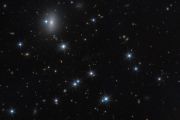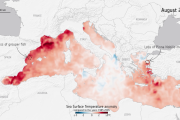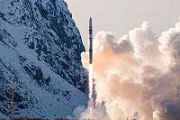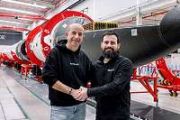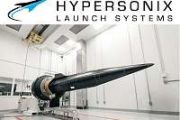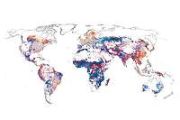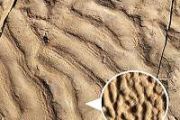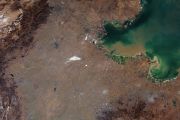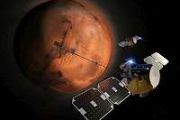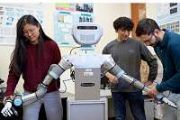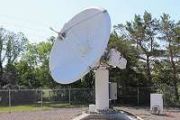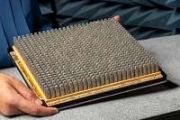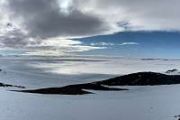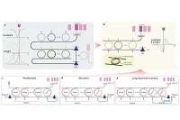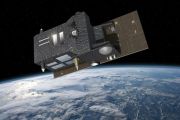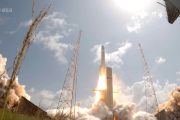
Copernical Team
GMV spearheads digital overhaul of Spain's national security system
 Multinational technology leader GMV has been awarded the contract from Spain's Department of National Security (DSN) to launch the first phase of the National Security System (SSN) Data Intelligence Platform. This GMV-led initiative, inaugurated with a kickoff meeting on September 13, represents a key development in enhancing Spain's critical infrastructure, with plans to elevate the operational
Multinational technology leader GMV has been awarded the contract from Spain's Department of National Security (DSN) to launch the first phase of the National Security System (SSN) Data Intelligence Platform. This GMV-led initiative, inaugurated with a kickoff meeting on September 13, represents a key development in enhancing Spain's critical infrastructure, with plans to elevate the operational Space Forge and Voyager Space partner to advance in-space manufacturing
 Space Forge, a pioneering force in sustainable in-space manufacturing and research, has signed a Memorandum of Understanding (MOU) with Voyager Space, a leading entity in space exploration, to jointly explore new horizons in space-based research and manufacturing.
Space Forge has established itself at the forefront of commercial space utilization, especially through its advanced materials
Space Forge, a pioneering force in sustainable in-space manufacturing and research, has signed a Memorandum of Understanding (MOU) with Voyager Space, a leading entity in space exploration, to jointly explore new horizons in space-based research and manufacturing.
Space Forge has established itself at the forefront of commercial space utilization, especially through its advanced materials Hera's CubeSats call home from Deep Space
 The European Space Agency's Hera mission for planetary defense has confirmed the successful activation of its two CubeSat passengers, marking ESA's first use of CubeSats in deep space. The two CubeSats completed initial system checks, exchanging signals with Earth for the first time to verify their status.
"Each CubeSat was activated for about an hour in turn, in live sessions with the gro
The European Space Agency's Hera mission for planetary defense has confirmed the successful activation of its two CubeSat passengers, marking ESA's first use of CubeSats in deep space. The two CubeSats completed initial system checks, exchanging signals with Earth for the first time to verify their status.
"Each CubeSat was activated for about an hour in turn, in live sessions with the gro Students aid NASA's plant growth research in space
 Since 2015, students from across the United States have been collaborating with NASA scientists to push forward essential research into growing plants in space as part of the Fairchild Tropical Botanic Garden's Growing Beyond Earth project. This unique initiative, now in its ninth year, is designed to support NASA's long-term goal of cultivating crops that can sustain astronauts on deep-space mi
Since 2015, students from across the United States have been collaborating with NASA scientists to push forward essential research into growing plants in space as part of the Fairchild Tropical Botanic Garden's Growing Beyond Earth project. This unique initiative, now in its ninth year, is designed to support NASA's long-term goal of cultivating crops that can sustain astronauts on deep-space mi USTC unveils high-energy Mars battery with extended lifespan for exploration
 A research team led by Prof. TAN Peng from the University of Science and Technology of China (USTC), part of the Chinese Academy of Sciences (CAS), has introduced a novel battery tailored to the demanding environmental conditions of Mars. Designed to harness the planet's atmospheric components as a direct fuel source, this advanced battery offers increased energy density and a prolonged cycling
A research team led by Prof. TAN Peng from the University of Science and Technology of China (USTC), part of the Chinese Academy of Sciences (CAS), has introduced a novel battery tailored to the demanding environmental conditions of Mars. Designed to harness the planet's atmospheric components as a direct fuel source, this advanced battery offers increased energy density and a prolonged cycling NASA outlines new potential landing regions for Artemis III mission
 NASA has refined its list of potential landing sites for the upcoming Artemis III mission, aiming to be the first crewed Moon landing in over 50 years. Nine candidate landing regions have been identified near the Moon's South Pole, with each area selected based on its scientific value, engineering feasibility, and potential to support sustainable lunar exploration. These regions will undergo fur
NASA has refined its list of potential landing sites for the upcoming Artemis III mission, aiming to be the first crewed Moon landing in over 50 years. Nine candidate landing regions have been identified near the Moon's South Pole, with each area selected based on its scientific value, engineering feasibility, and potential to support sustainable lunar exploration. These regions will undergo fur Impact craters on Venus revealed by new research
 Researchers have discovered what may be a long-hidden record of ancient impact craters on Venus, shedding light on a planetary history distinct from Earth's. Unlike Earth, where wind, water, and tectonic shifts obscure impact sites, Venus shows fewer such processes, leaving some of the Solar System's most pristine craters. However, the planet still lacks the giant impact basins seen on the Moon
Researchers have discovered what may be a long-hidden record of ancient impact craters on Venus, shedding light on a planetary history distinct from Earth's. Unlike Earth, where wind, water, and tectonic shifts obscure impact sites, Venus shows fewer such processes, leaving some of the Solar System's most pristine craters. However, the planet still lacks the giant impact basins seen on the Moon Centaurus A's black hole jet shown in unprecedented detail
 Researchers from the University of Michigan have uncovered new insights into black hole jets by analyzing over two decades of data from NASA's Chandra X-Ray Observatory. This investigation provides a fresh look at the complex dynamics of these enigmatic cosmic structures.
The study centers on the high-energy jet of particles ejected from the supermassive black hole at the core of the galax
Researchers from the University of Michigan have uncovered new insights into black hole jets by analyzing over two decades of data from NASA's Chandra X-Ray Observatory. This investigation provides a fresh look at the complex dynamics of these enigmatic cosmic structures.
The study centers on the high-energy jet of particles ejected from the supermassive black hole at the core of the galax Perseverance surveys its path as it ascends Jezero Crater
 NASA's Perseverance rover is navigating a challenging climb up Jezero Crater's western slope, aiming to reach the rim by early December. During the ascent, the rover captured a panoramic view of Jezero's interior along with images of its own tracks, left as its wheels encountered slippage on the slope.
The image, composed of 44 frames taken on Sept. 27, Perseverance's 1,282nd Martian day,
NASA's Perseverance rover is navigating a challenging climb up Jezero Crater's western slope, aiming to reach the rim by early December. During the ascent, the rover captured a panoramic view of Jezero's interior along with images of its own tracks, left as its wheels encountered slippage on the slope.
The image, composed of 44 frames taken on Sept. 27, Perseverance's 1,282nd Martian day, Hera asteroid mission's CubeSat passengers signal home
This request seems a bit unusual, so we need to confirm that you're human. Please press and hold the button until it turns completely green. Thank you for your cooperation!
Press and hold the button
If you believe this is an error, please contact our support team.
185.132.36.159 : b81fd8f0-6d40-41b3-863d-419fa4f3


